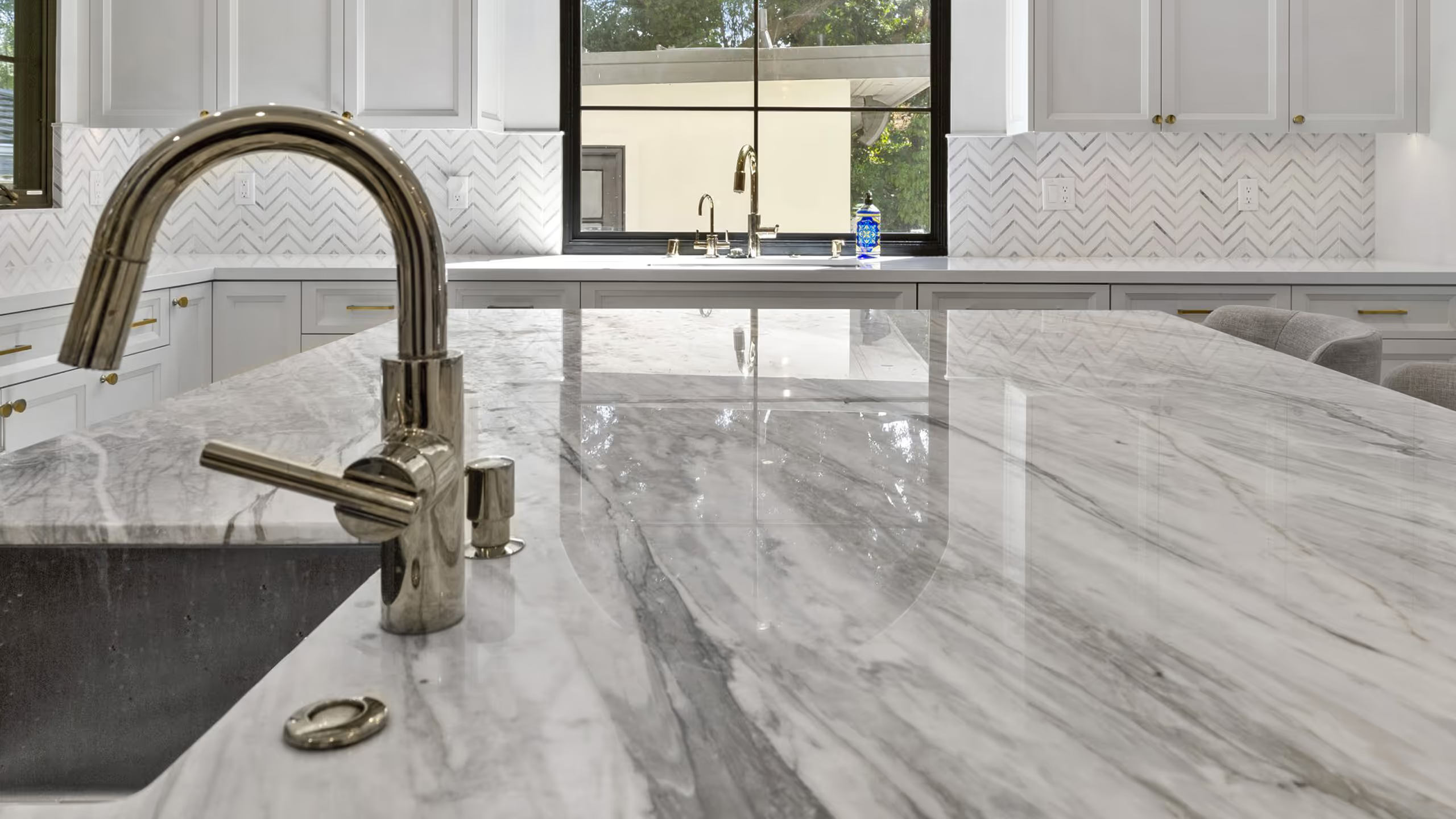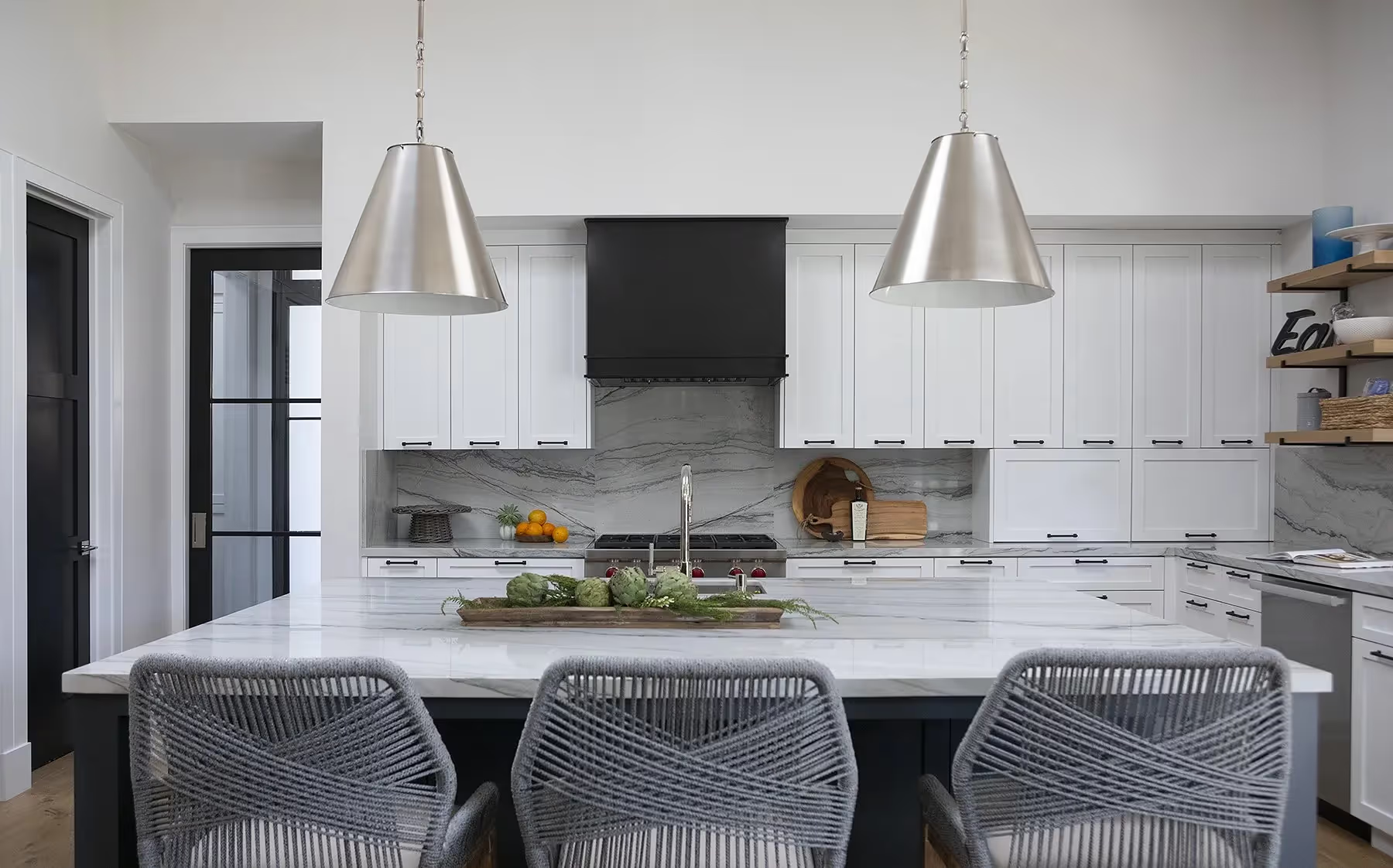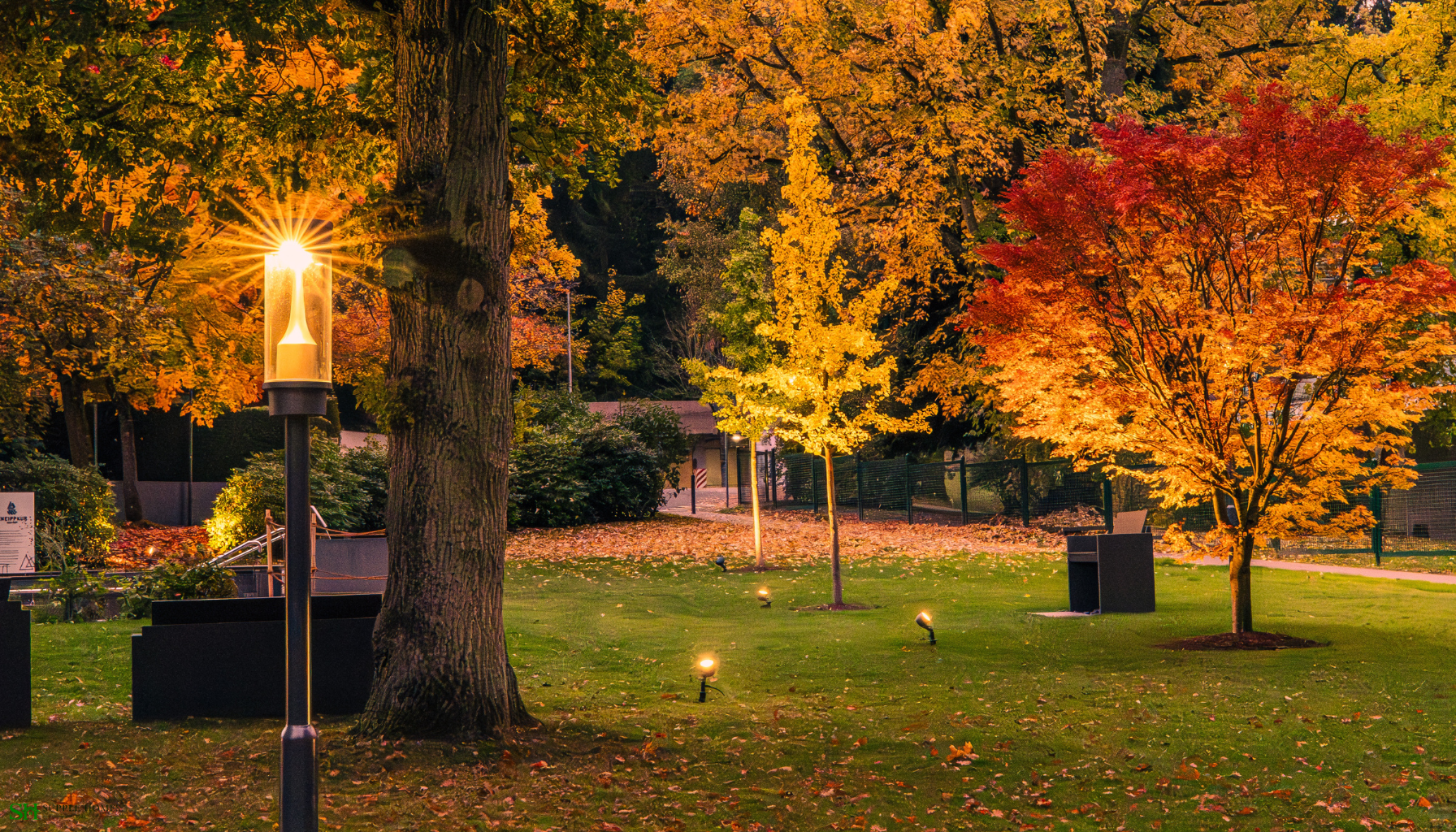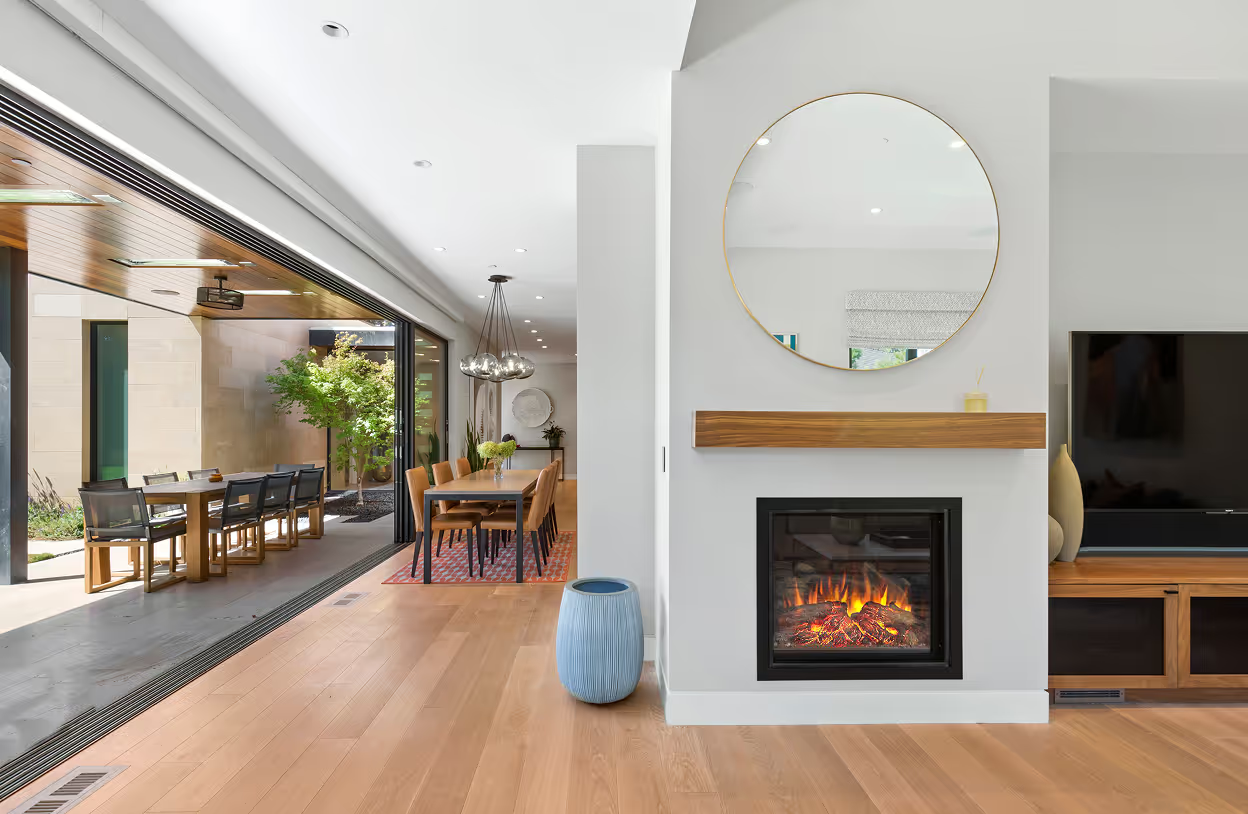The kitchen truly is the heart of a home. When you’re re-imagining your kitchen, you need to utilize different designs and materials to create a cohesive and tasteful space but also understand which aesthetics are best for certain lifestyles.
Kitchen countertops are a prime example! The countertops are one of the main focal points of a kitchen that (usually) sees a lot of action on a daily basis. Do you cook a lot? Does your kitchen see a lot of foot traffic? Do you have children?
You may dream about having luxurious calacatta marble, a custom quartz, or maybe an industrial concrete countertop, but there are a few factors to consider before making a decision solely on appearance. Read on to learn more about a few of the most popular countertop options, including:
- Marble
- Quartz/quartzite
- Granite
- Concrete
We’ll also dive into other important considerations such as maintenance, durability, and pricing.
Marble
Marble is mined from quarries all around the world and is known for its classic look and ability to add a touch of luxury to any room.
It comes in many different colors and is notorious for its beautiful, unique veining that is formed from crystalized minerals. Having marble countertops may sound luxurious, but there are a few things you should know before making a commitment.
Do marble countertops require a lot of maintenance?
The first thing to consider is the level of maintenance that marble countertops require. Marble is a porous stone, meaning it has tiny spaces that allow liquids to seep into the stone, making it extremely high maintenance.
The porous quality of marble makes the stone highly susceptible to stains from liquids like wine, oils, juice, coffee, and more—you know, the usual things you keep in a kitchen.
Marble countertops are usually professionally sealed upon installation, which lasts around a year. After that, marble countertops should be sealed every six to twelve months. There is also a spray sealant that can be applied once a month to help combat staining.
To clean marble countertops, you should stay away from any harsh chemicals. Don’t clean your countertops with anything you wouldn’t use on your skin. Generally, soap and warm water will do the trick, and you need to clean spills as soon as they happen. The longer liquids sit, the more likely they are to cause staining
Are marble countertops durable?
The Mohs scale is a system that ranks minerals based on their hardness. Marble rates 3-5 out of 10, meaning it’s relatively soft.
This low rating makes it the perfect material for carving sculptures and other decorations, but it is not always an ideal durability for countertops. The softness of marble makes it far more susceptible to chipping, scratching, and etching than other stone options.
Exposure to acidic foods like tomatoes or lemons for an extended period of time can cause etching, which is when the acid removes the sealant.
Avoid leaning on countertops with belt buckles, cutting without a cutting board, and bumping countertops with cooking equipment. These actions can damage the countertop.
How much do marble countertops cost?
As with choosing any other materials for your home, there are many factors that influence pricing. Your geographic area, the size of your kitchen, the type of marble, the amount of cutouts needed, and even the type of cutout.
For example, a standard sink cutout will cost around $350, whereas a cutout for a farmhouse sink will be closer to $450. There is no real way to give an exact estimate.
That being said, the average price for marble countertops (not including installation) is $70 to $80+ per square foot, and the typical kitchen will require around 70 square feet of material. Prices will vary depending on the type of marble and the amounts needed. For example, calacatta marble is more expensive than carrara marble.
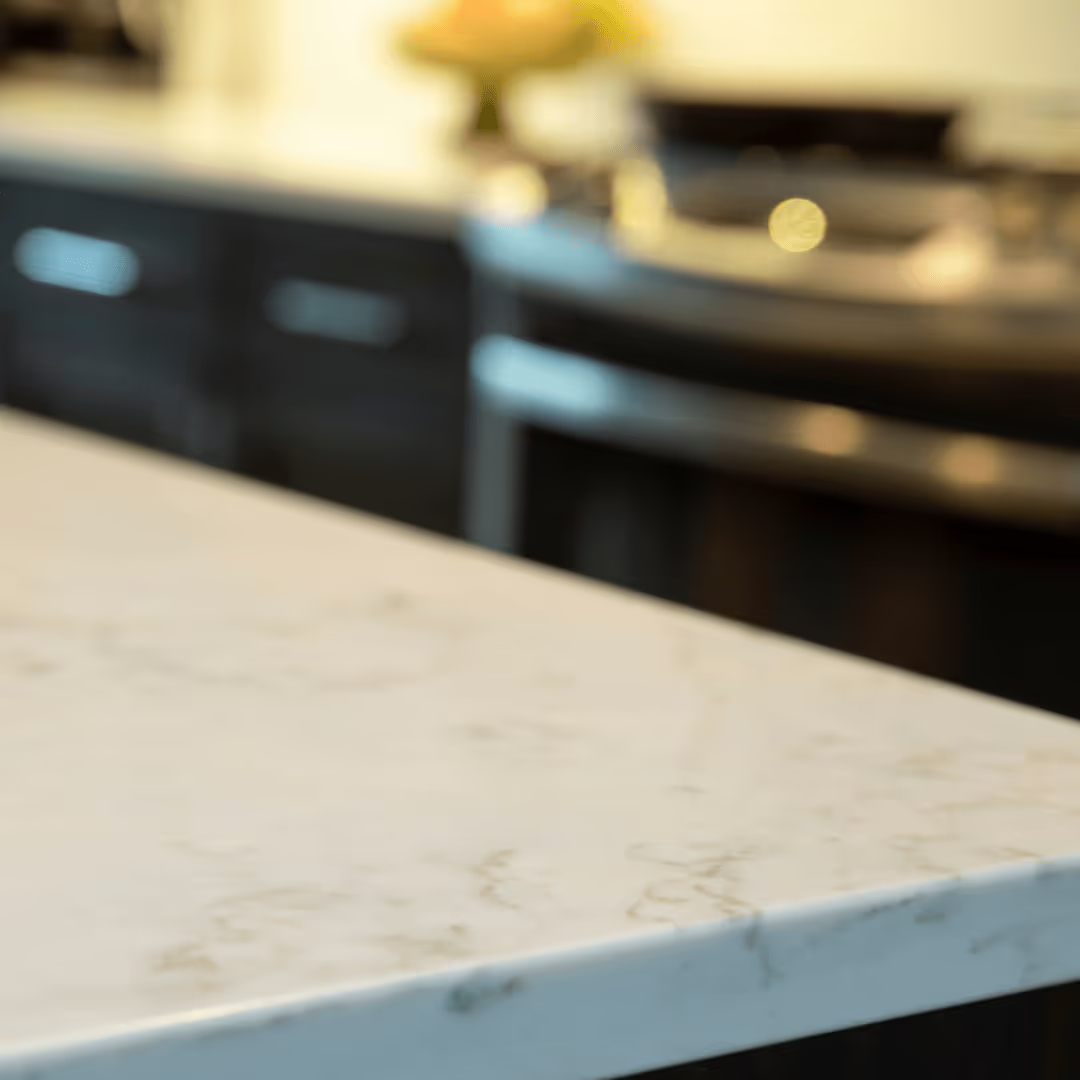
Quartz and Quartzite
It’s easy to get quartz and quartzite mixed up. So, what’s the difference? Quartz countertops are man-made, whereas quartzite is au naturale. Similar to marble and granite, quartzite is quarried and cut into slabs.
But isn’t quartz a natural material? Yes, quartz countertops are composed of about 90% quartz, but there are other materials added, such as resins, polymers, and pigments.
That makes quartz countertops more customizable than other countertop materials. For example, if you want the classic, veined look of marble countertops but want something more durable, you can have quartz countertops customized to look almost identical to marble. Examples of Quartz countertops are the brand names Caesarstone, Cambria or Silestone.
Are quartz/quartzite countertops high-maintenance?
Quartz: Quartz is ground into a powder form and is then added to a mixture of other materials, which makes it nonporous. Quartz countertops are low maintenance because they do not require periodic sealing, they do not have all the tiny spaces where bacteria and viruses can get trapped, and they are stain-resistant.
Still be mindful of what cleaning solutions you use on quartz countertops. The resin and pigments in the countertop can react with certain chemicals found in bleach, paint remover, oil soaps, etc., potentially causing the countertop to change color.
Quartzite: Different types of quartzite are more porous than others, but it is still considered a fairly low-maintenance option. It’s a good idea to have quartzite countertops resealed annually. Aside from annual sealing, they require very little upkeep.
How durable are quartz/quartzite countertops?
Quartz: Quartz is highly resistant to scratching and etching, but when it comes to heat, the resins and polymers used in quartz countertops do not hold up well. Excessive heat can permanently damage quartz countertops and leave them with white and cloudy spots.
Quartzite: One of the selling points for quartzite is its durability. It scores approximately 7 on the Mohs hardness scale, making it highly resistant to chipping, scratches, and heat. It can be susceptible to etching, so don’t allow acidic liquids to sit for too long on quartzite countertops.
How much do quartz/quartzite countertops cost?
Because quartz countertops are man made, they are one of the more affordable countertop options. The average cost for materials is $40 to $80+ per square foot depending on the style.
On the other hand, quartzite is one of the pricier options. For materials alone, countertops are usually $80 to $95++ per square foot.
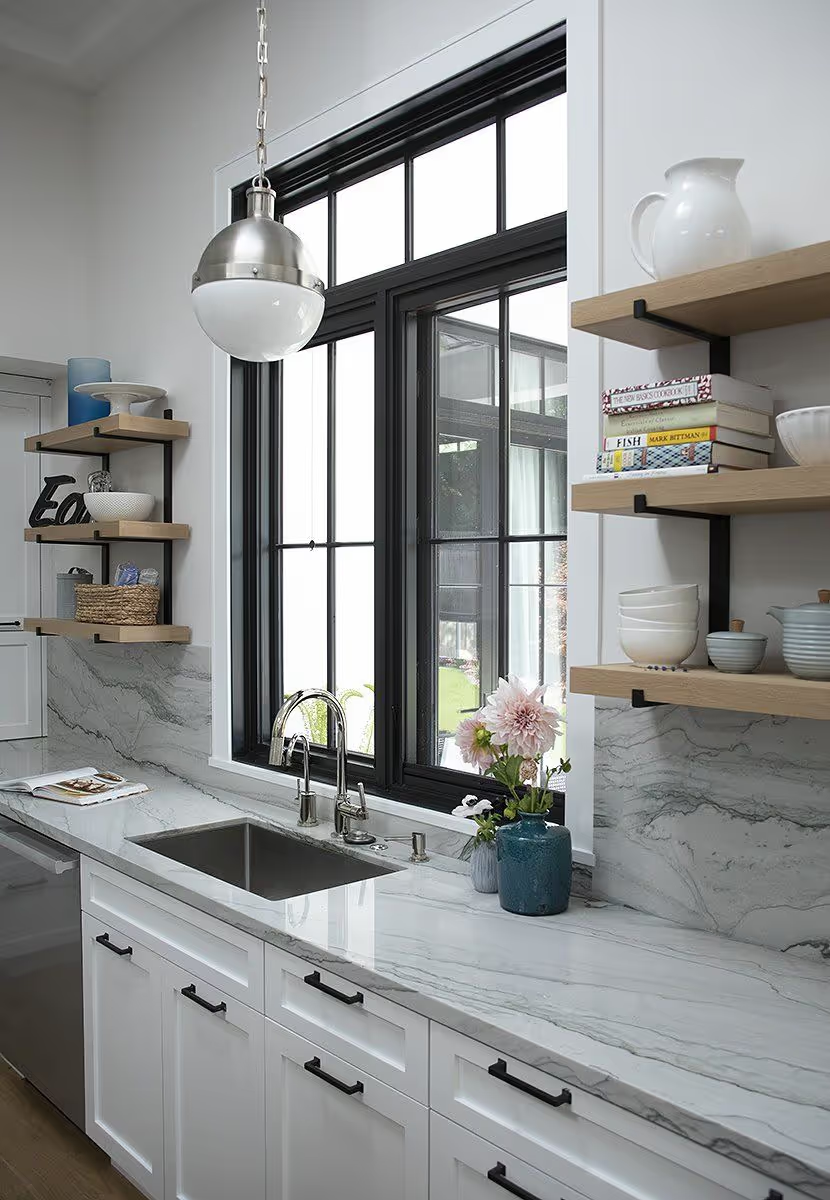
Granite
Granite is 100% natural and is generally composed of quartz and feldspar (can contain other minerals) and, like marble, is mined from quarries. Although there are many different color options, granite is generally known for its rich and dark pigments.
Are granite countertops low-maintenance?
It’s not as low-maintenance as quartz, but it is relatively easy to care for. Like many other natural stones, granite needs to be sealed to avoid liquids seeping in and staining the countertops. They can be cleaned with a cleaner specifically for granite as well as with soap and water.
You should always use cutting boards to not only protect your countertops from scratching and etching, but to prevent your countertops from dulling your knives.
How durable are granite countertops?
Granite is a porous stone, but it is also one of the most durable countertop stone options. Granite scores a 6 on the Mohs scale, and is one of the most durable stones that you can use in your home. If sealed properly, they hold up extremely well to scratches, chipping, and heat.
How much do granite countertops cost?
The price of a granite countertop will vary based on the size of your countertop, cutouts, and the type of granite you choose. For just materials, the average price for granite countertops is $50 to $80 per square foot.
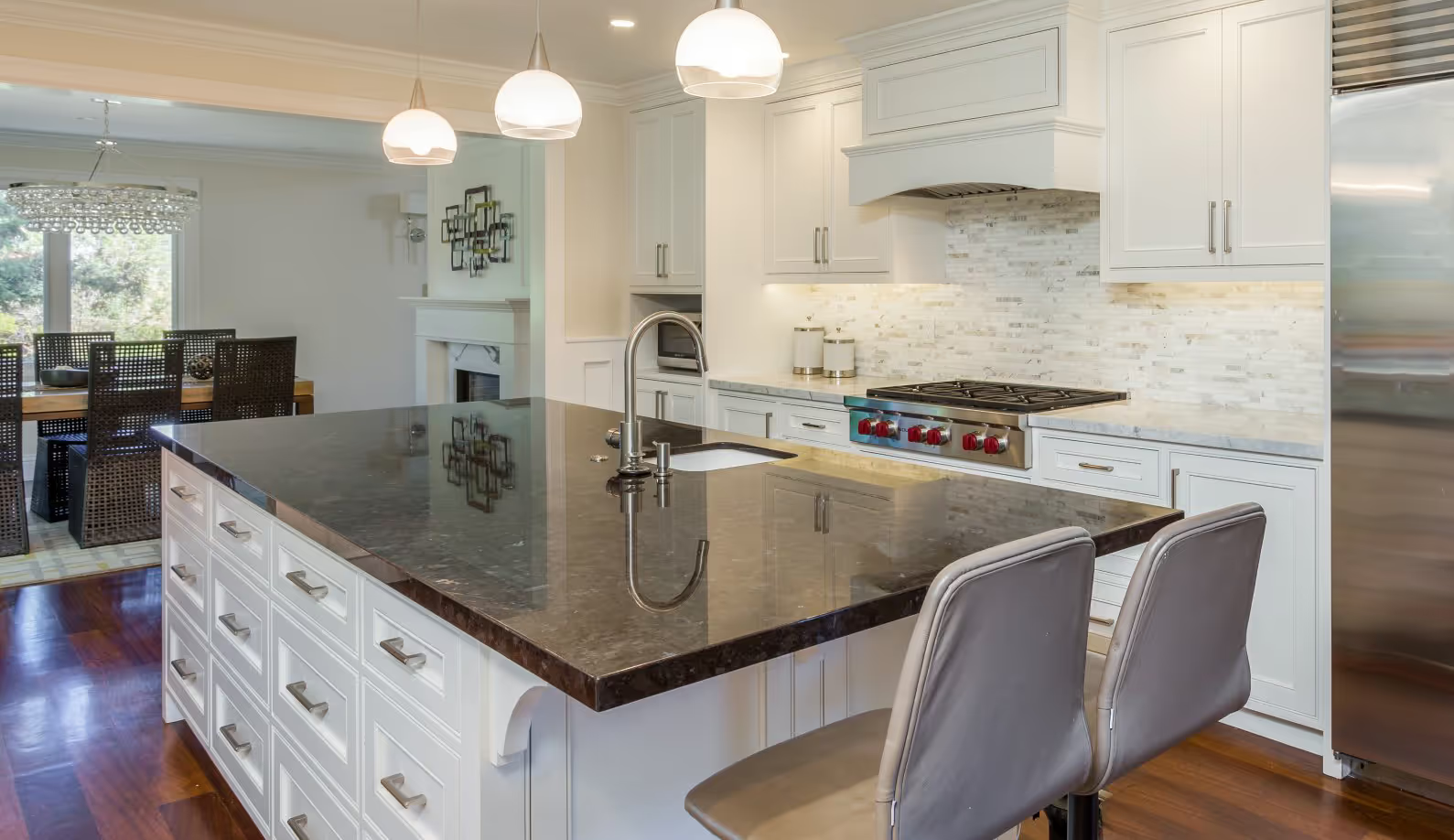
Concrete
Concrete countertops are composed of cement, aggregate, and water. It may not sound like much at first, but the great thing about concrete countertops is that they can be poured into any shape and will not have any seams.
How do you maintain concrete countertops?
Concrete countertops are porous and require annual sealing, as well as waxing every five to six months to protect against stains and the usual wear and tear.
Even when concrete countertops are properly cared for, they can still develop a blue or green film called patina that naturally occurs over time due to oxidation. For some homeowners, this patina is highly coveted.
How durable are concrete countertops?
If you are going for a more rustic/industrial look and are okay with imperfections, concrete countertops might be for you. Concrete countertops are extremely susceptible to stains and although not a threat structurally, hairline cracks from shrinkage are inevitable. The concrete countertop sealant is not heat resistant, so hot pots and pans can cause permanent damage.
How much do concrete countertops cost?
Concrete countertops aren’t perfect (which is part of their charm). What’s more is that concrete countertops are budget-friendly compared to marble and granite. The average price for materials is around $50 to $65 per square foot.
Custom kitchens deserve the perfect countertop
There are so many ways to personalize your kitchen, not only through traditional aesthetics like color and form, but with functionality as well.
Countertops that work for one household may not be the best option for another, and that’s okay! There are so many options out there and it’s important to do your research and consider durability, price, maintenance, and aesthetics to find a countertop that is right for you.
Here at Supple Homes, we understand that style and substance go hand-in-hand. We believe that designing a custom home or planning a remodel means thinking about the smallest details like countertop edging to the largest elements like lighting.
If you’re in the Bay Area and ready to redesign your home, contact us today to schedule a consultation.
